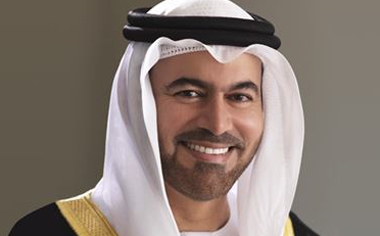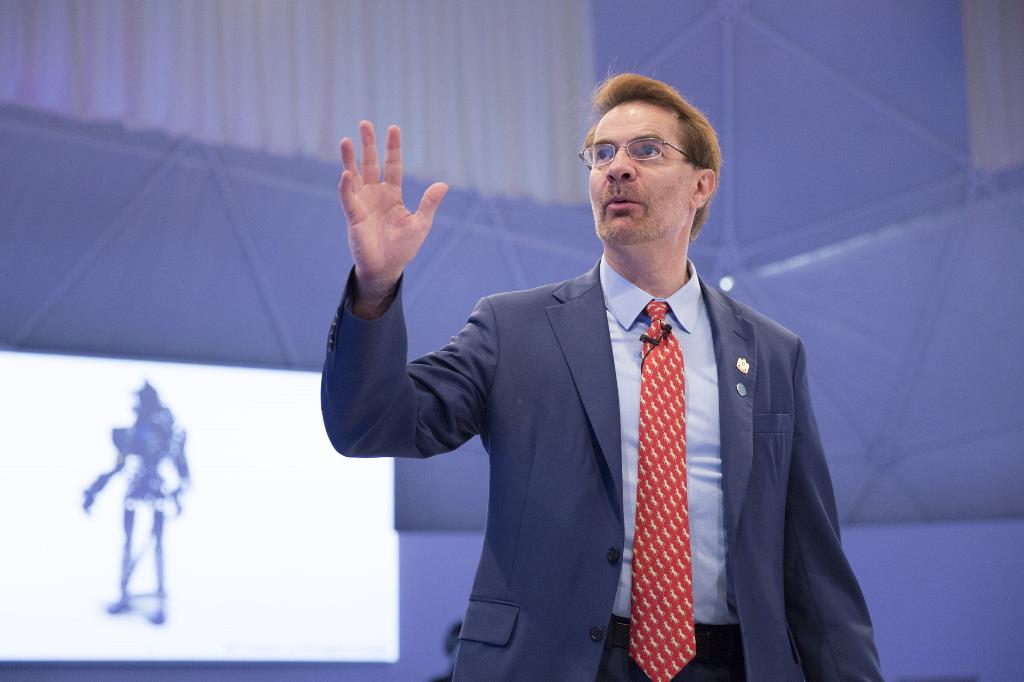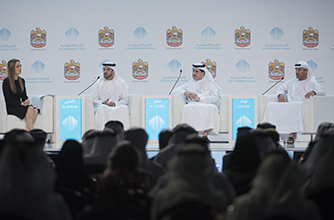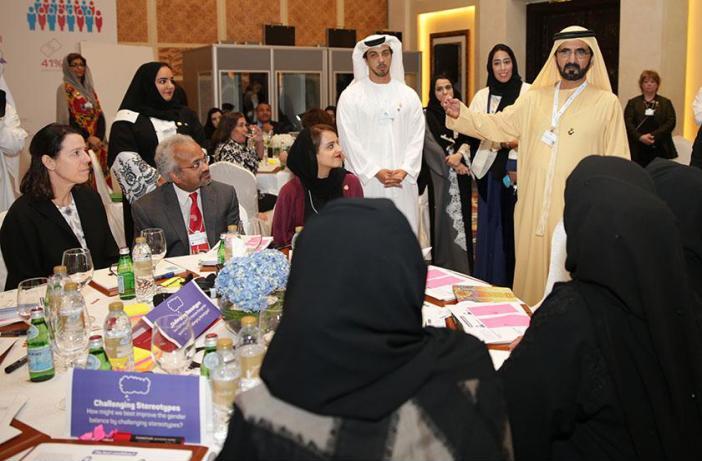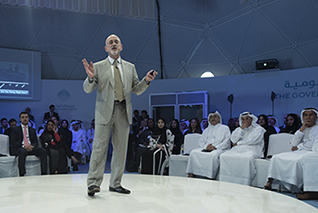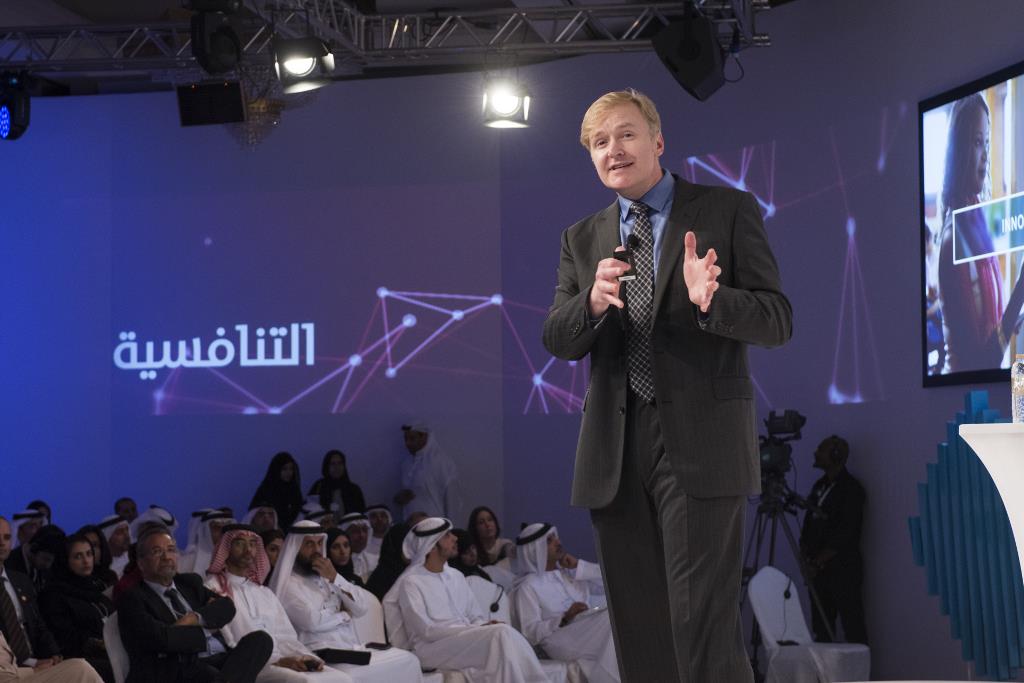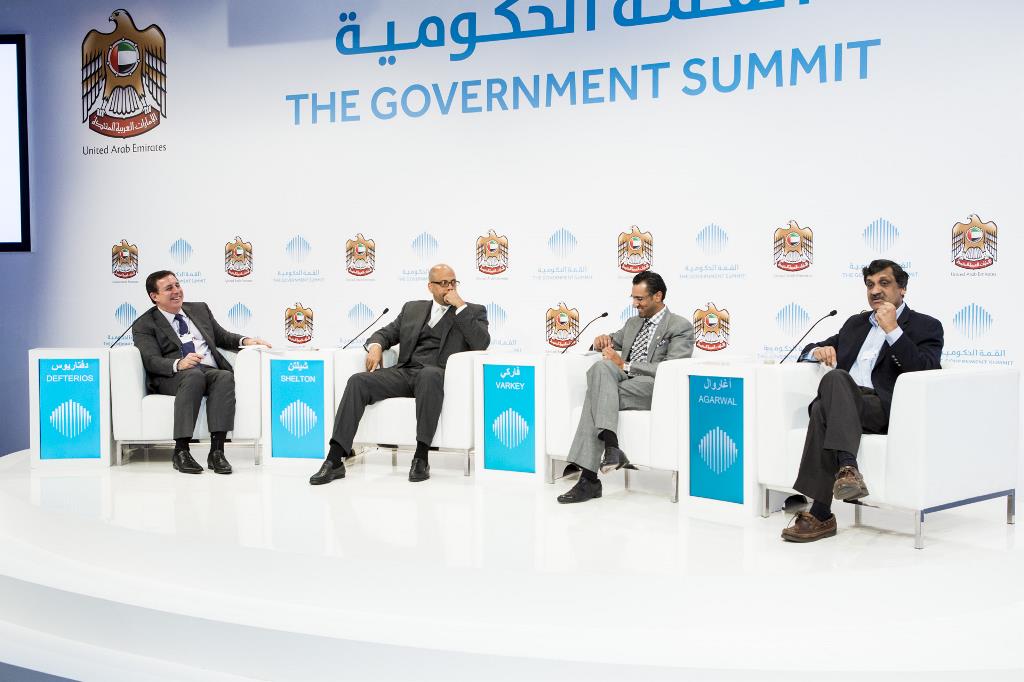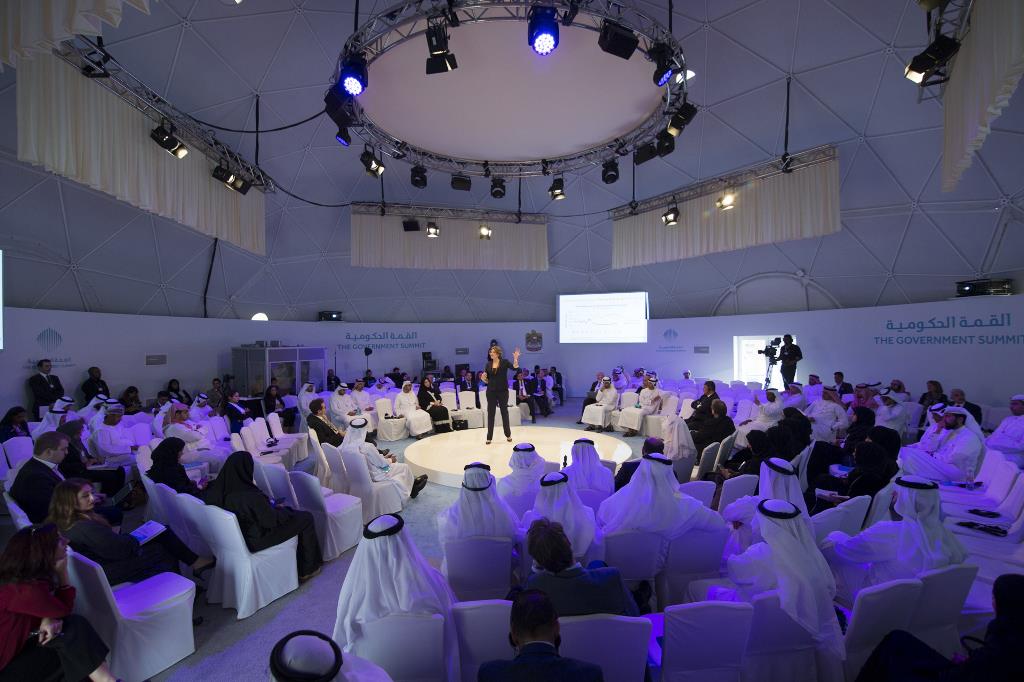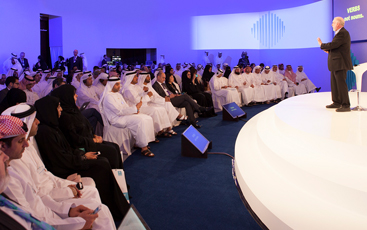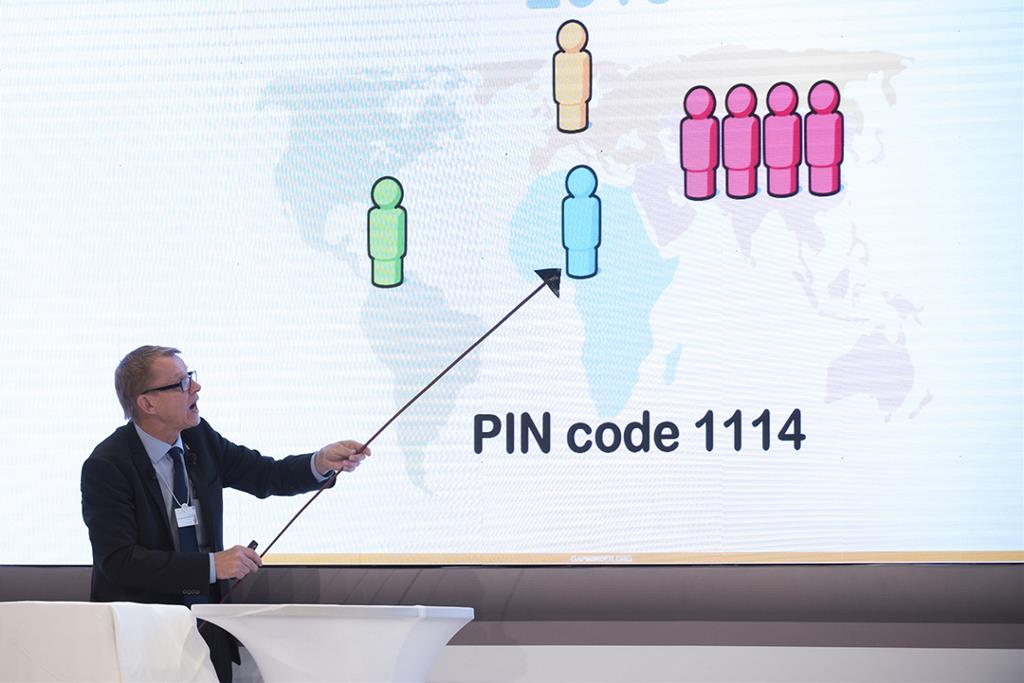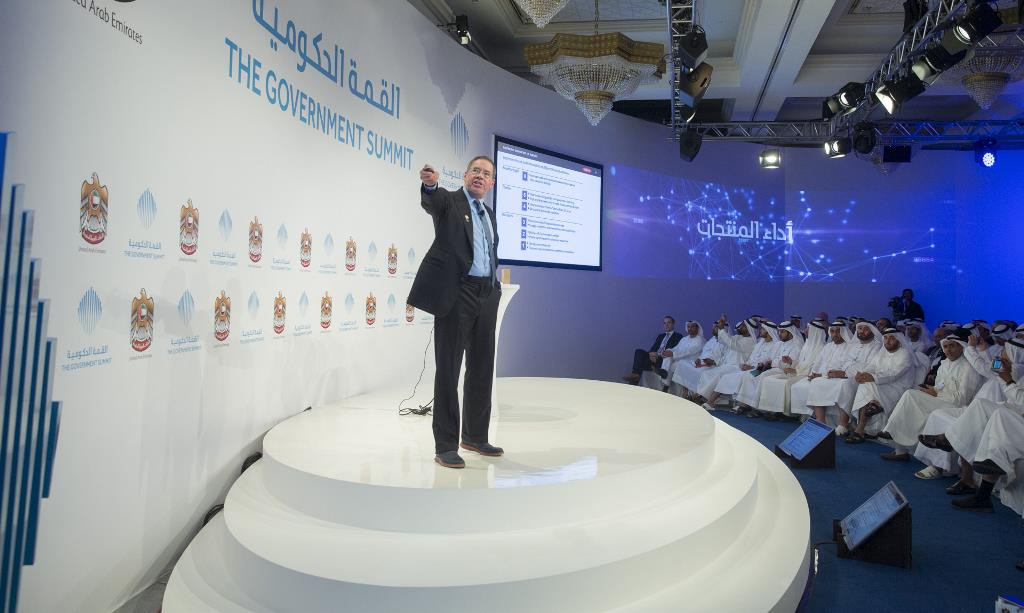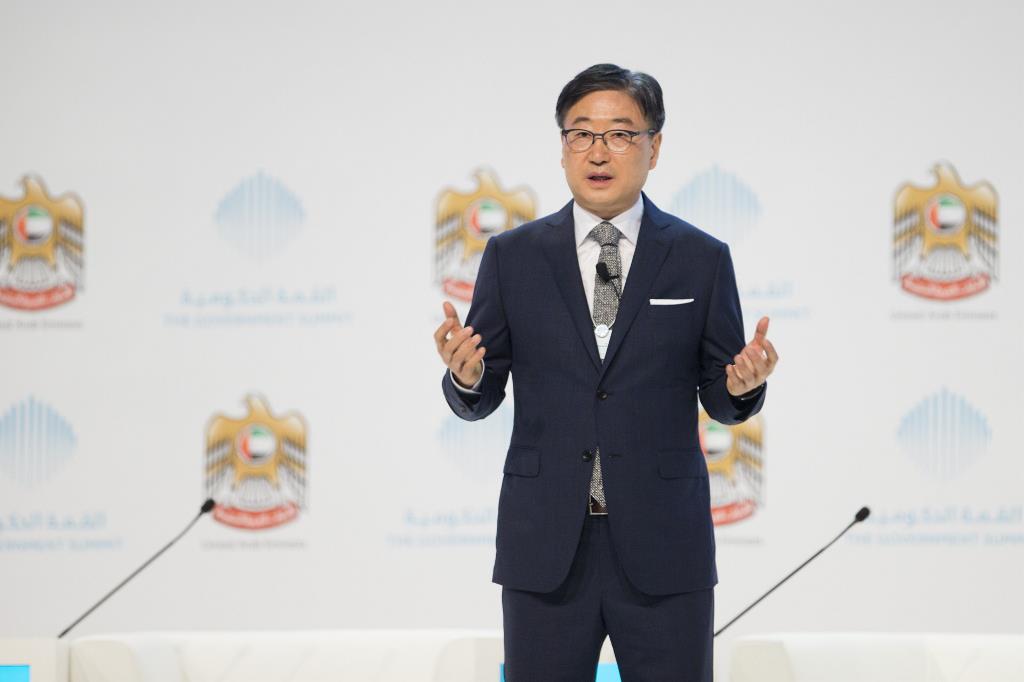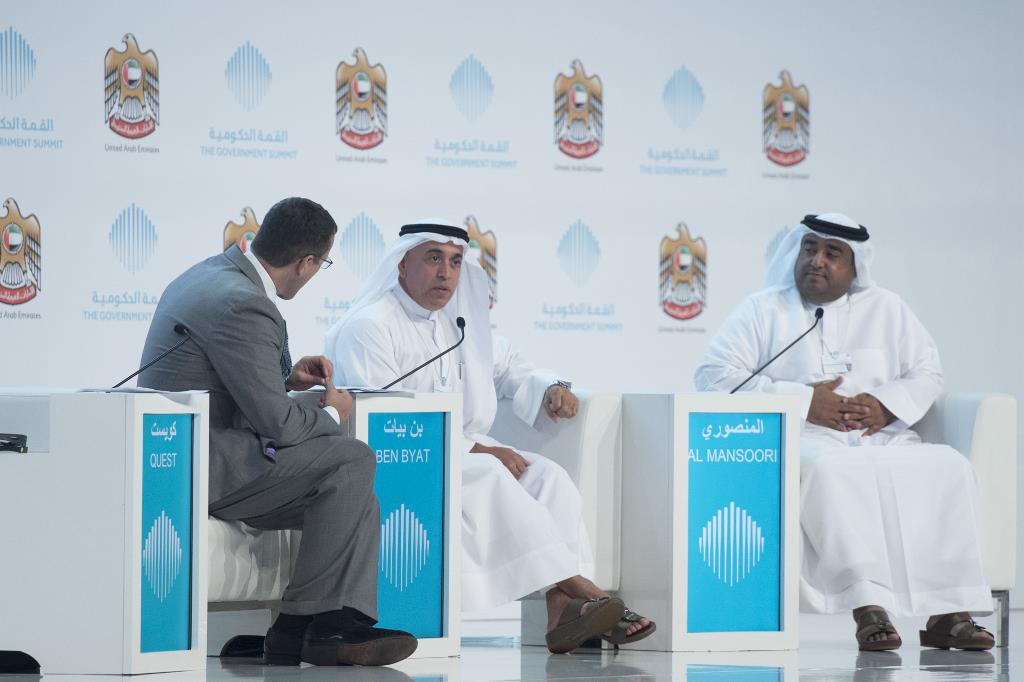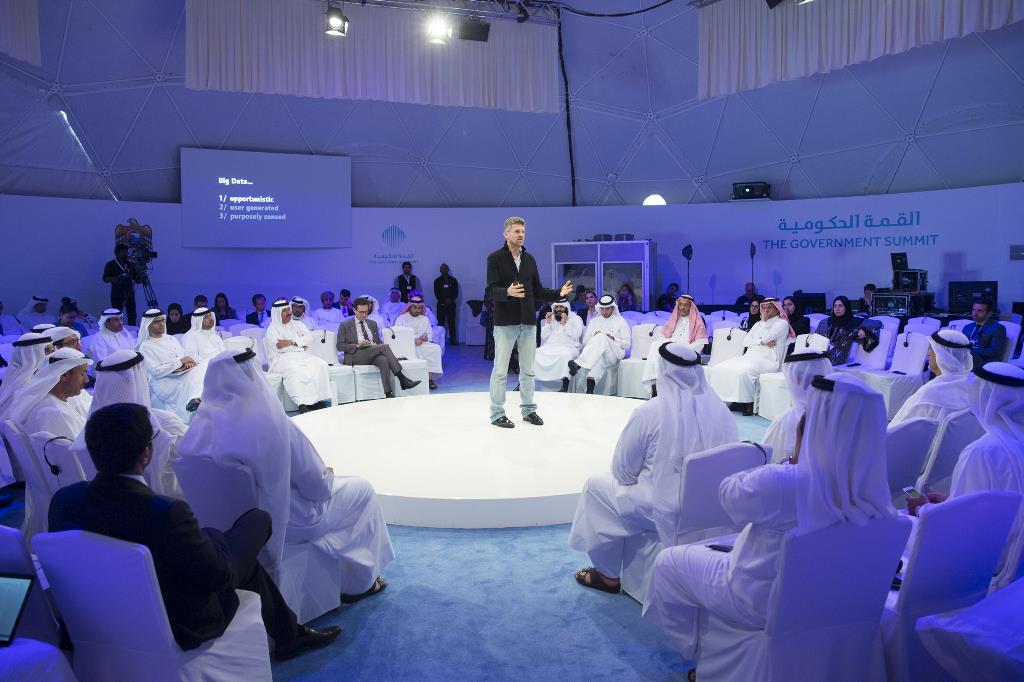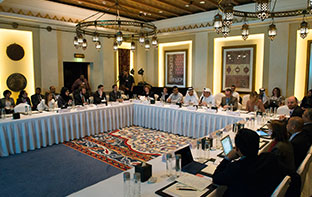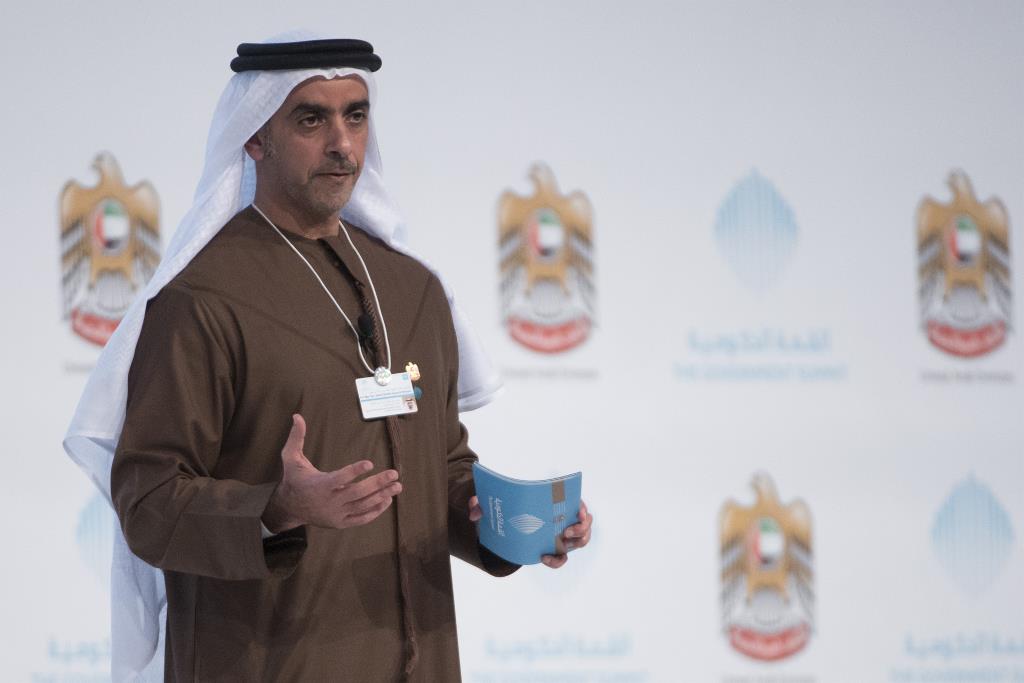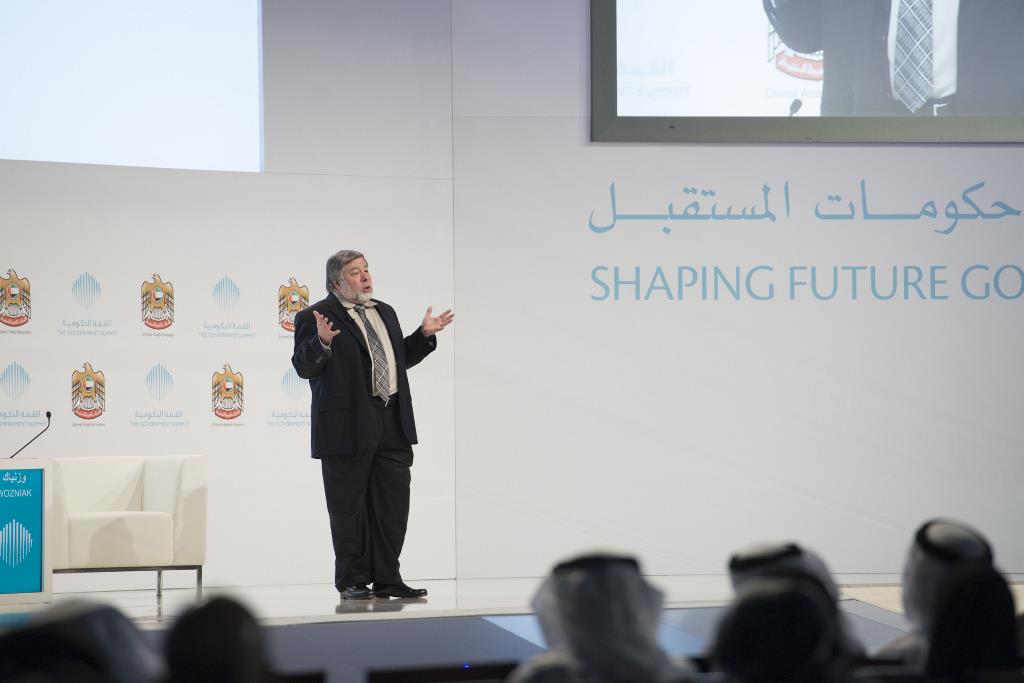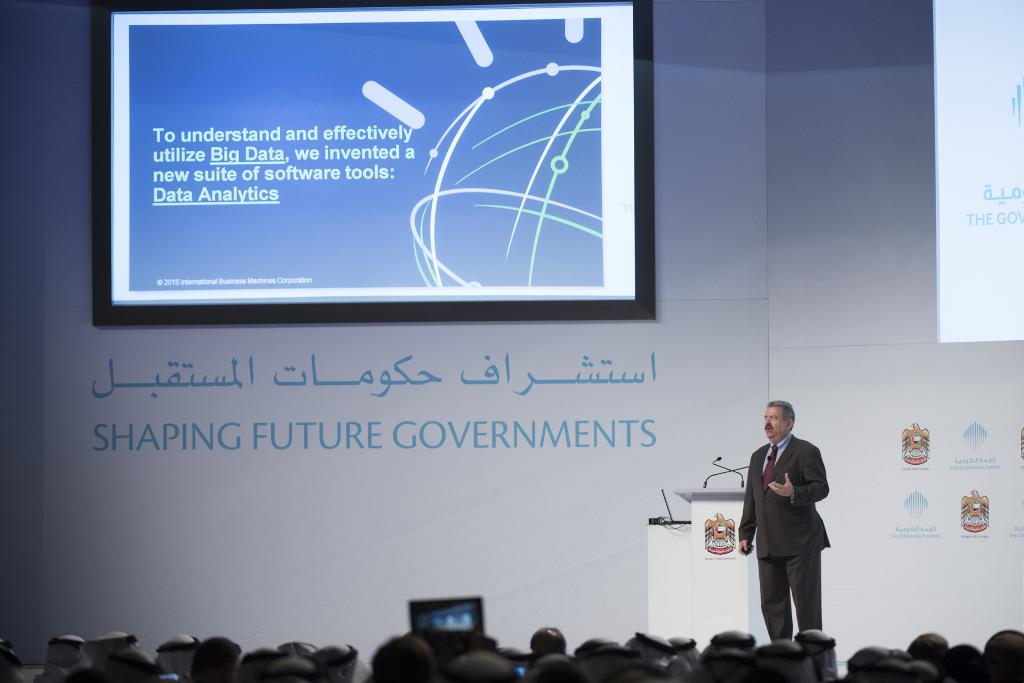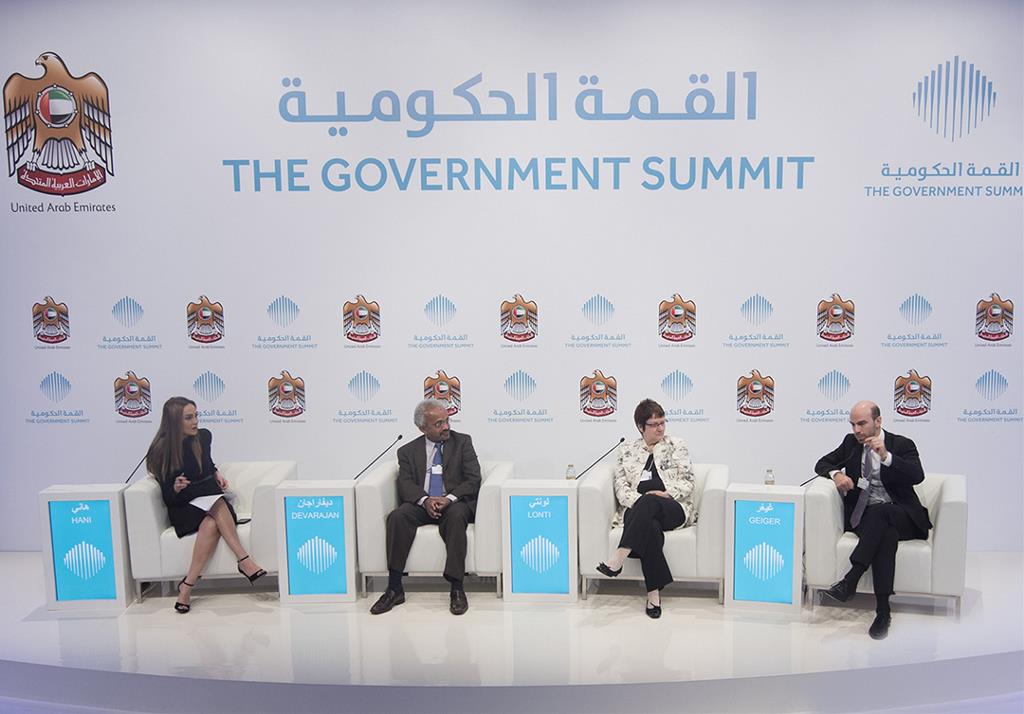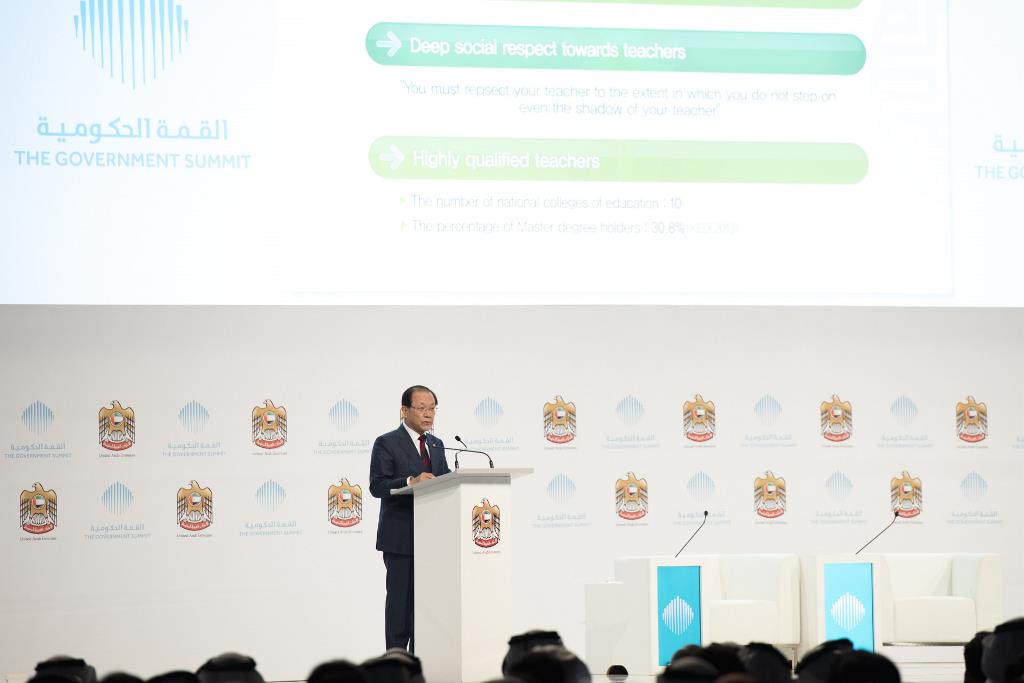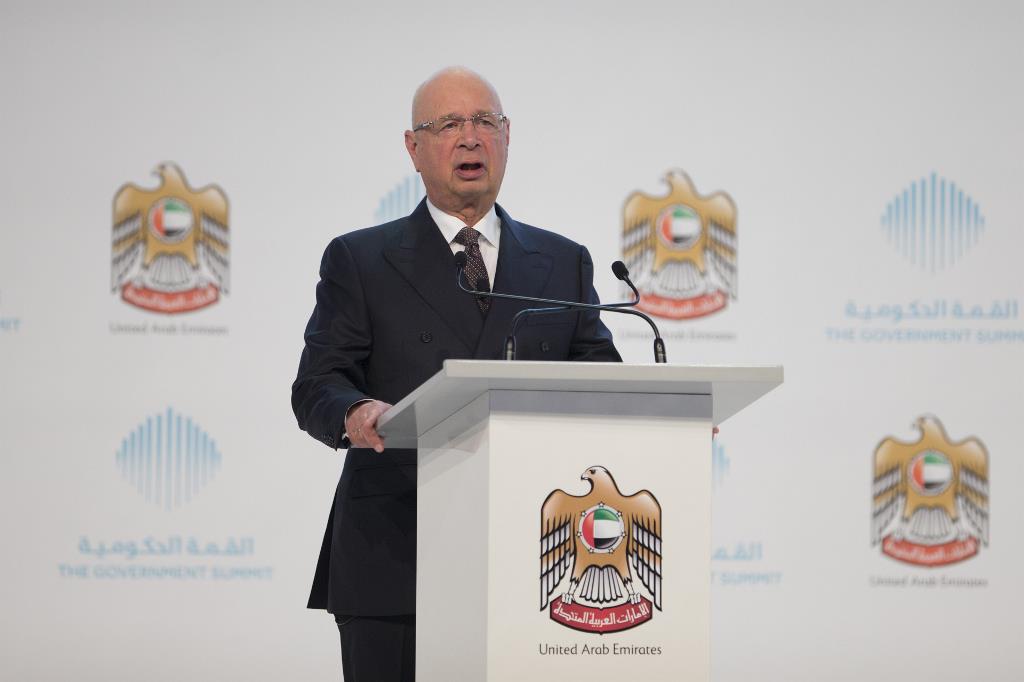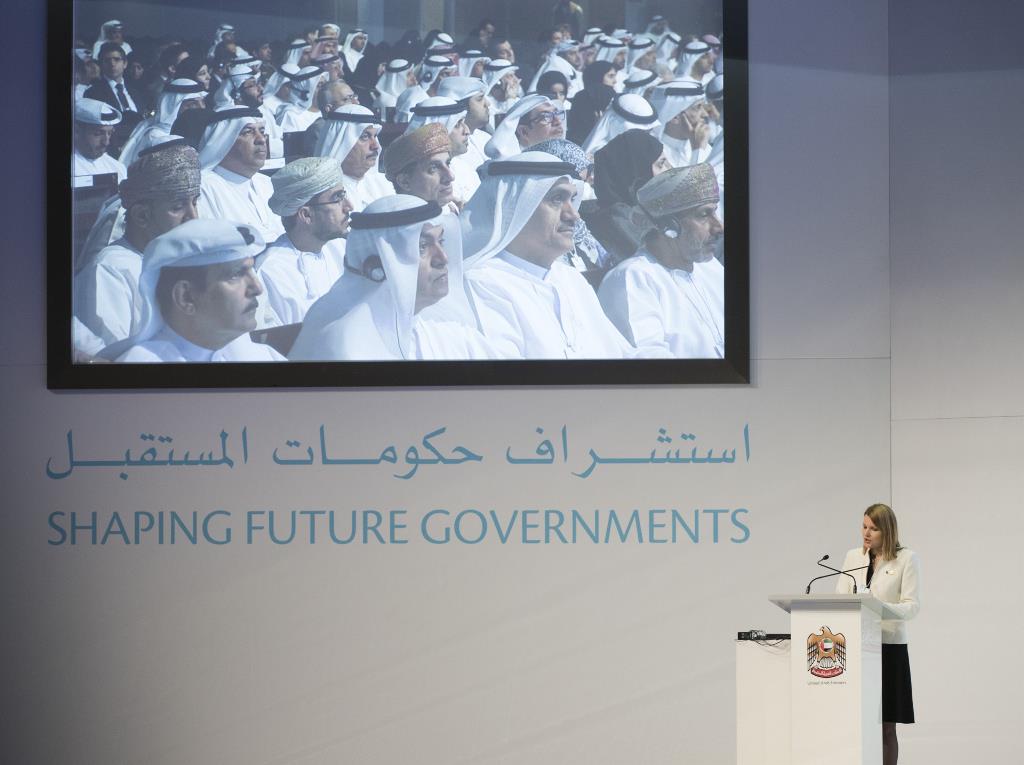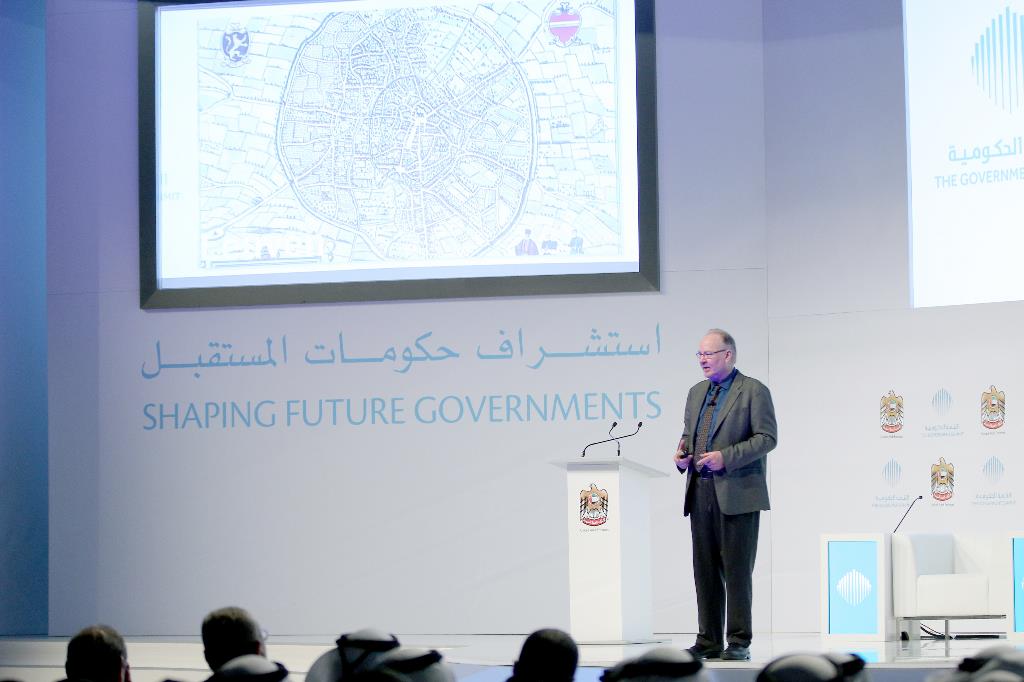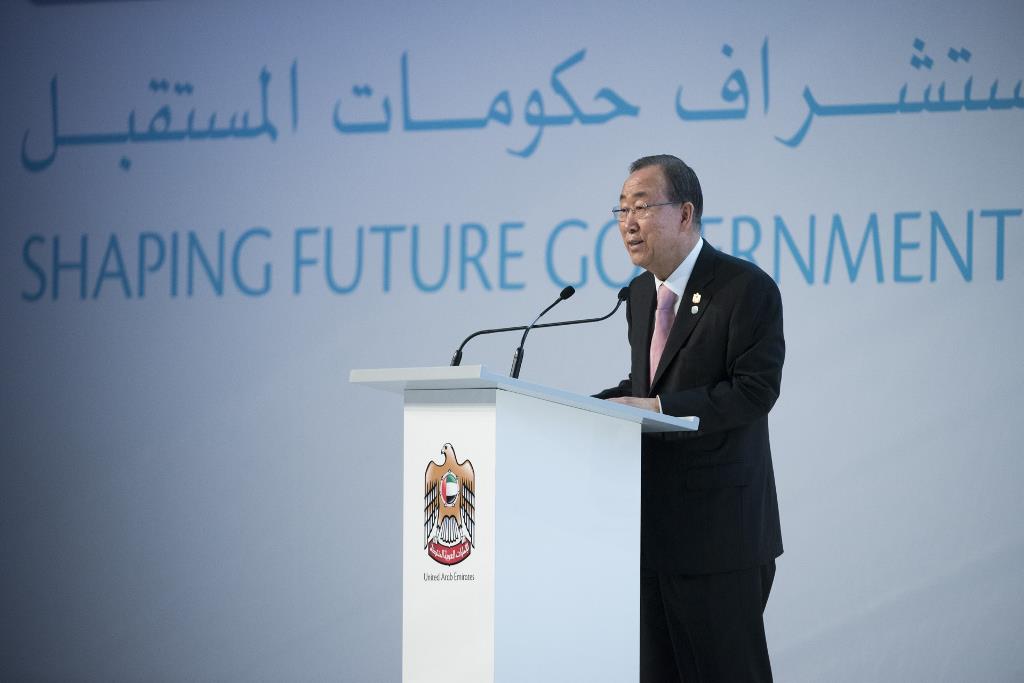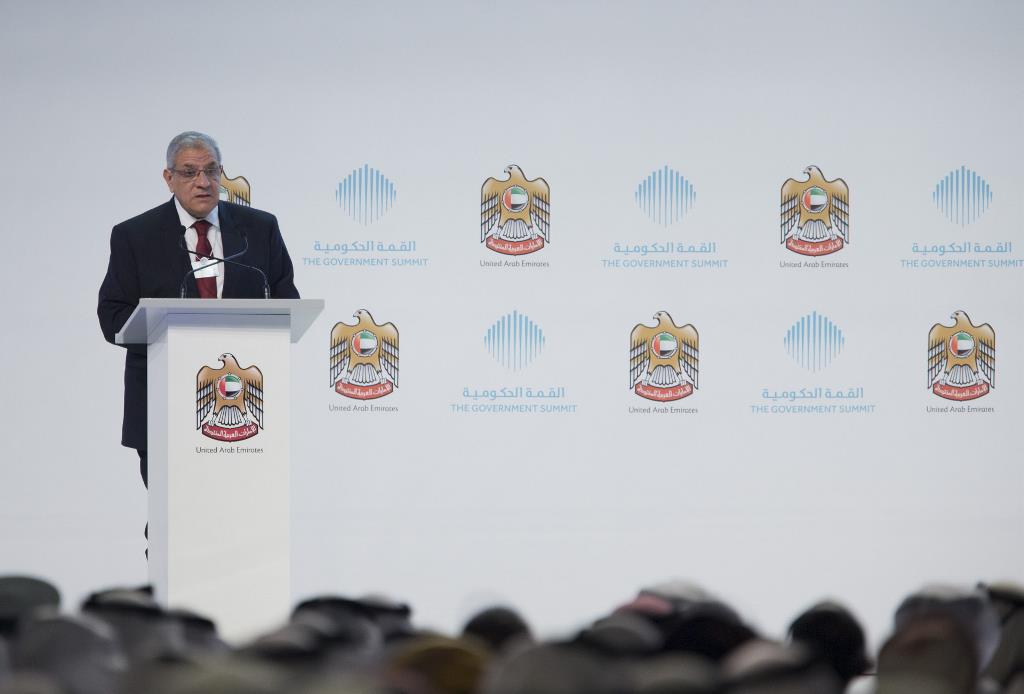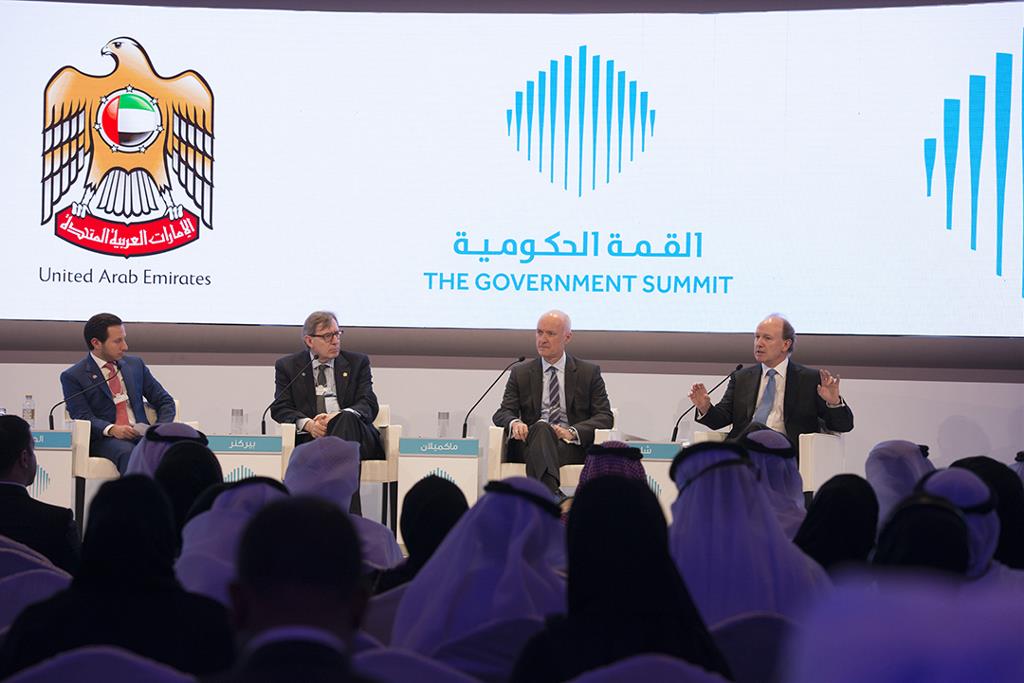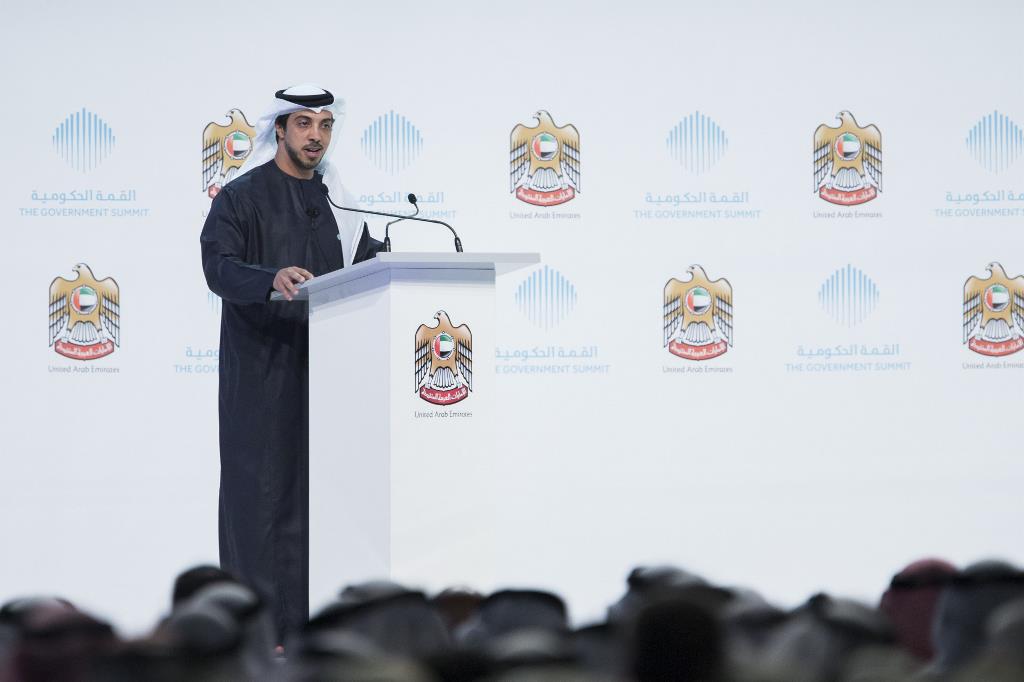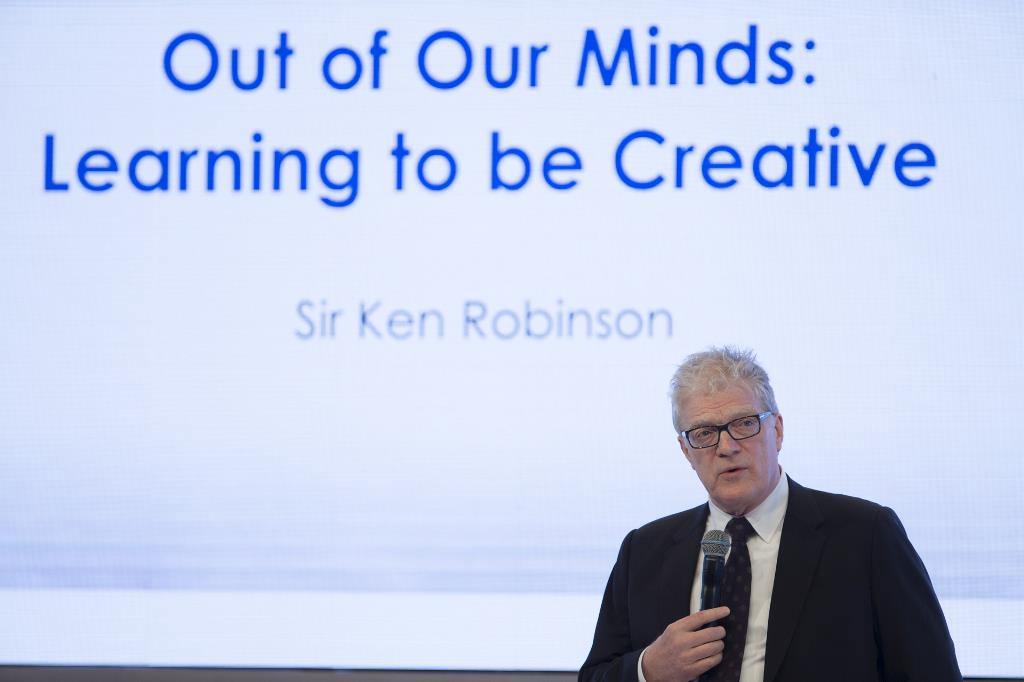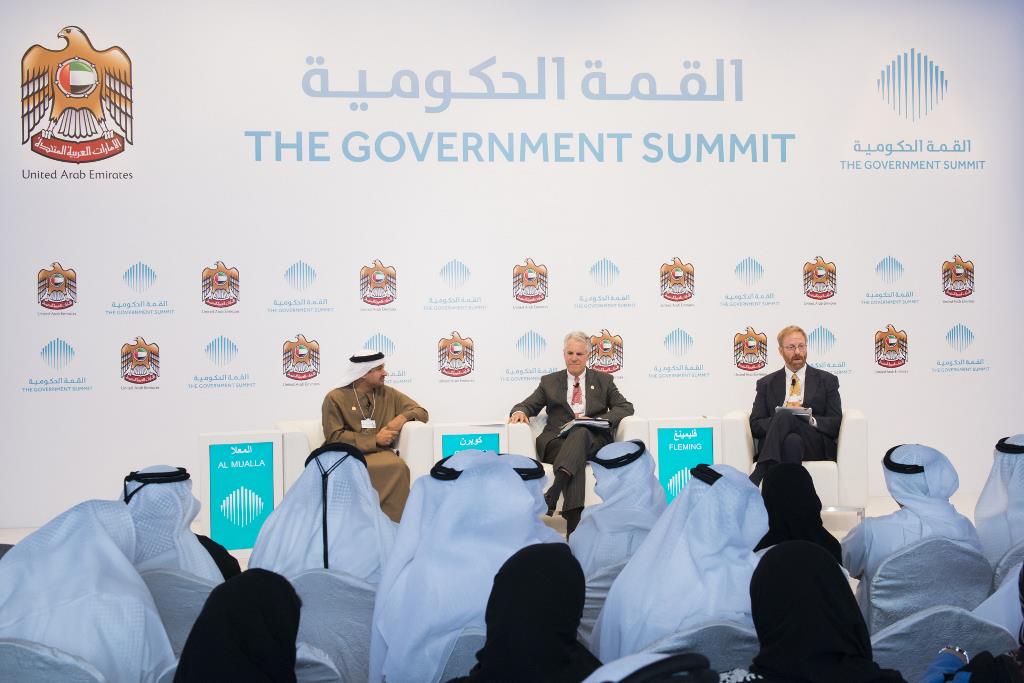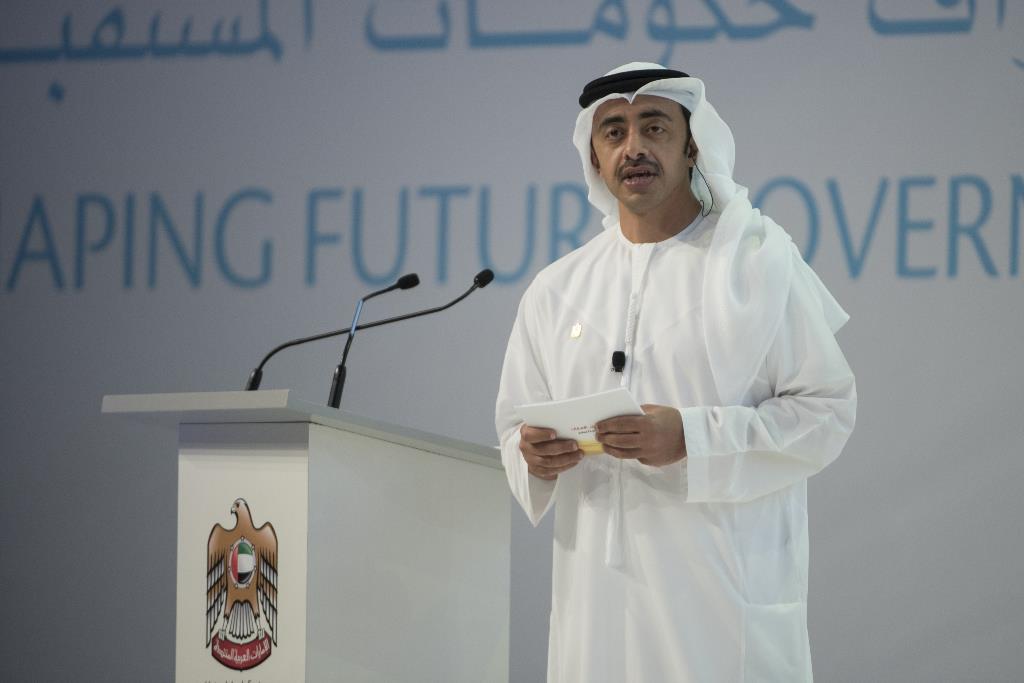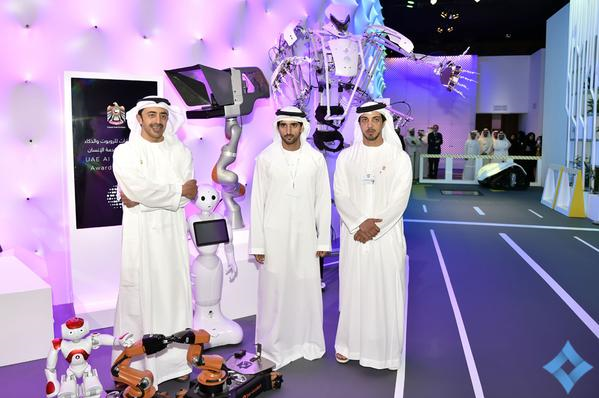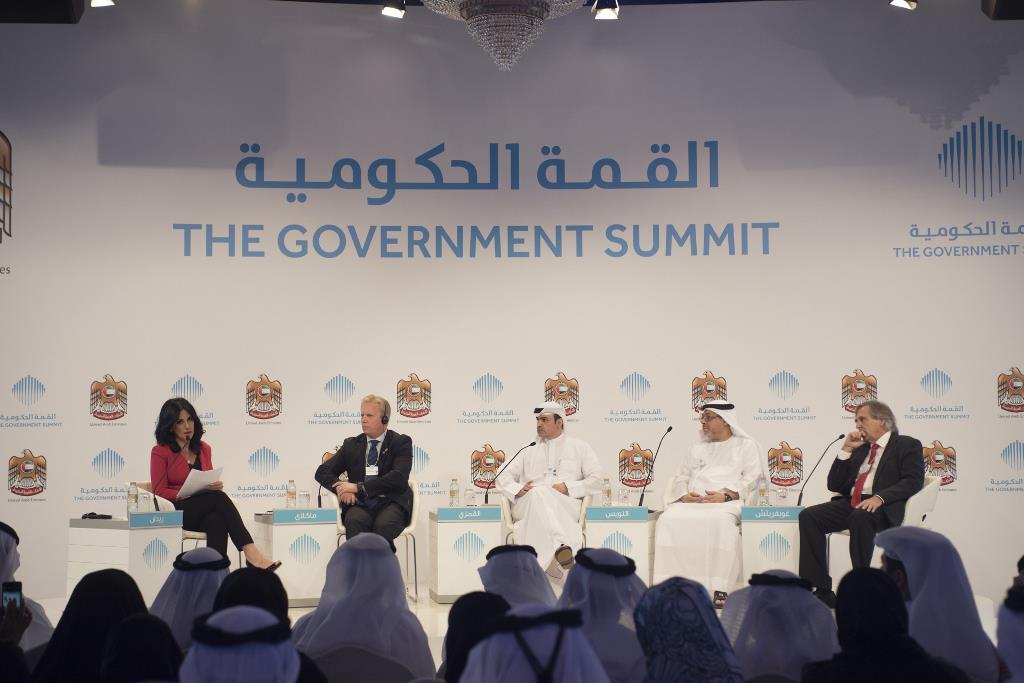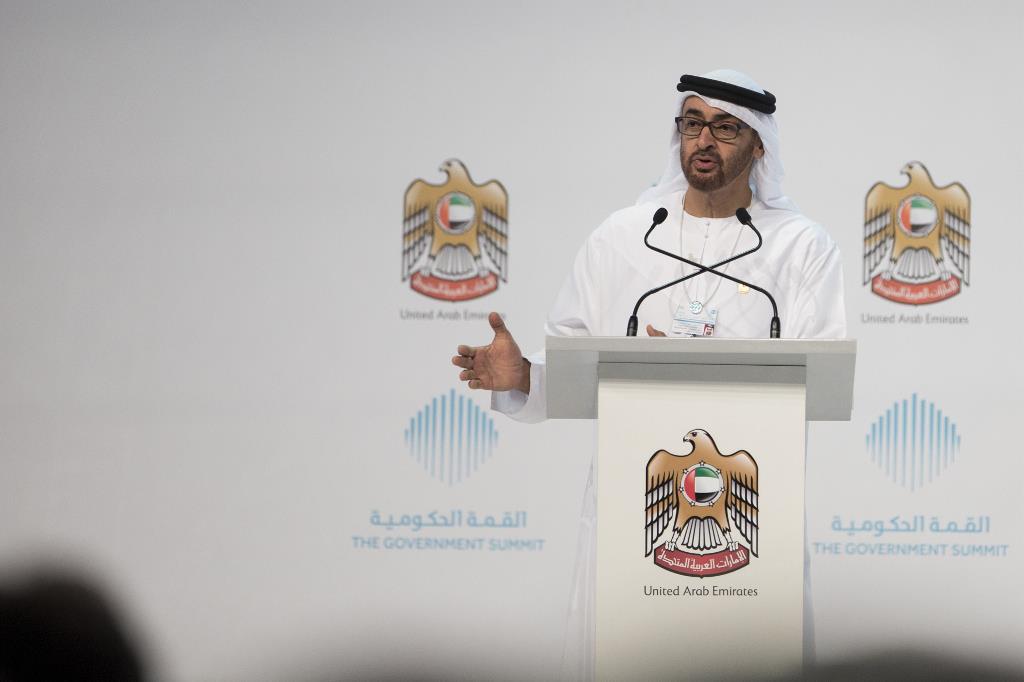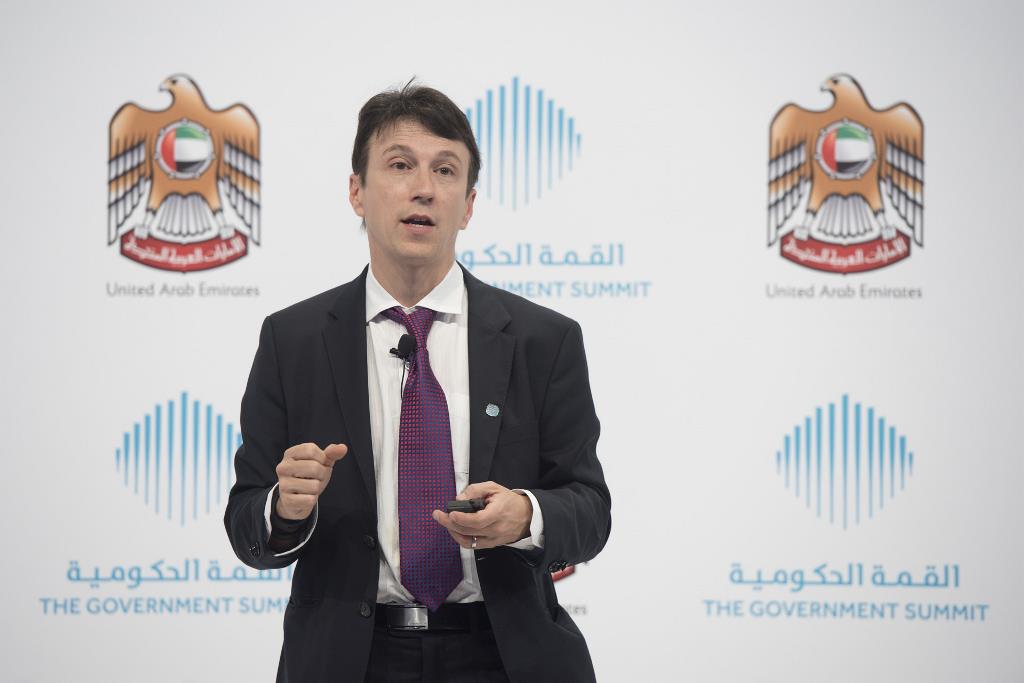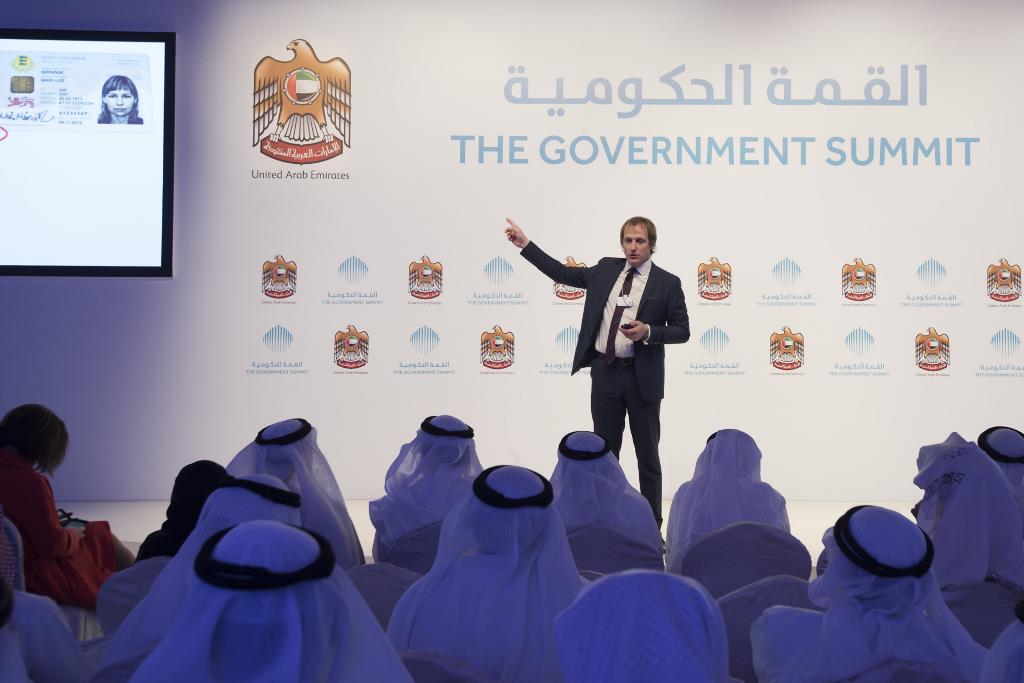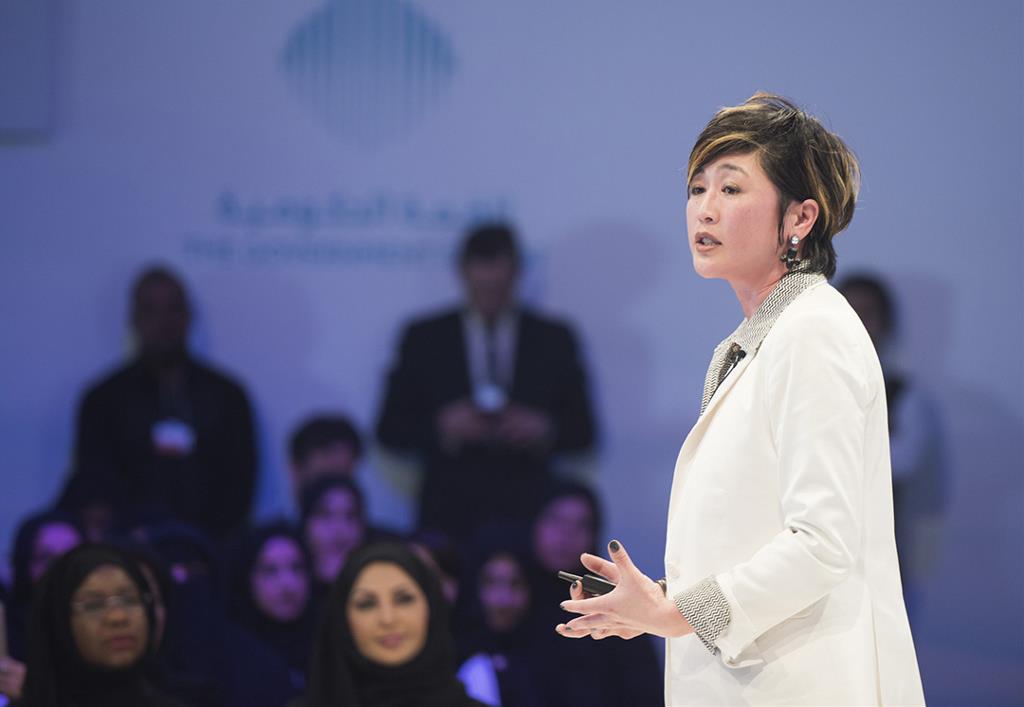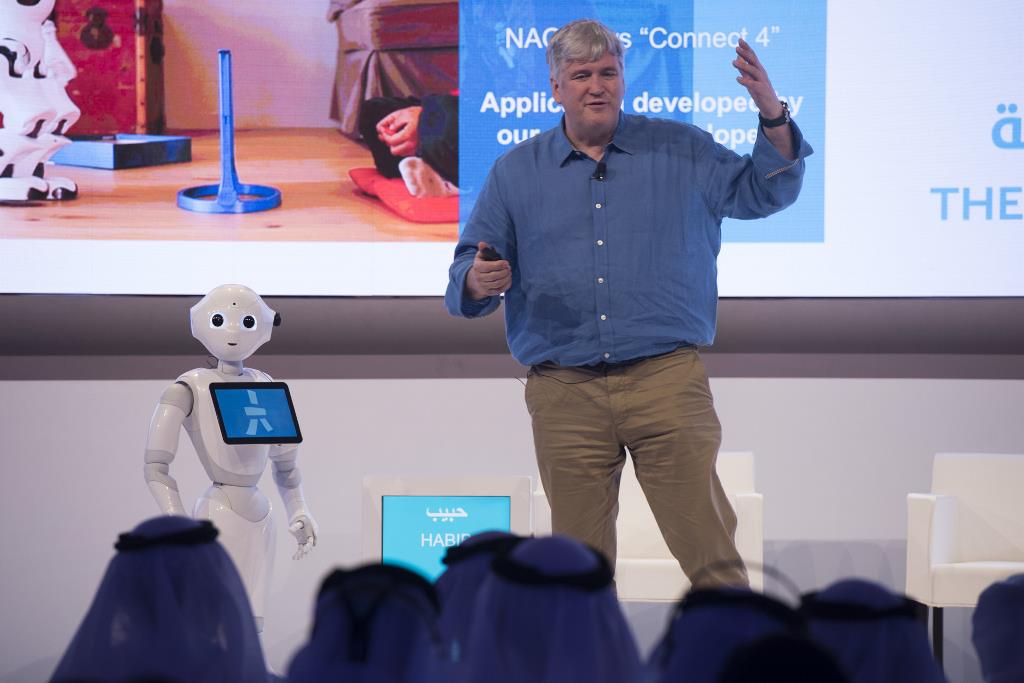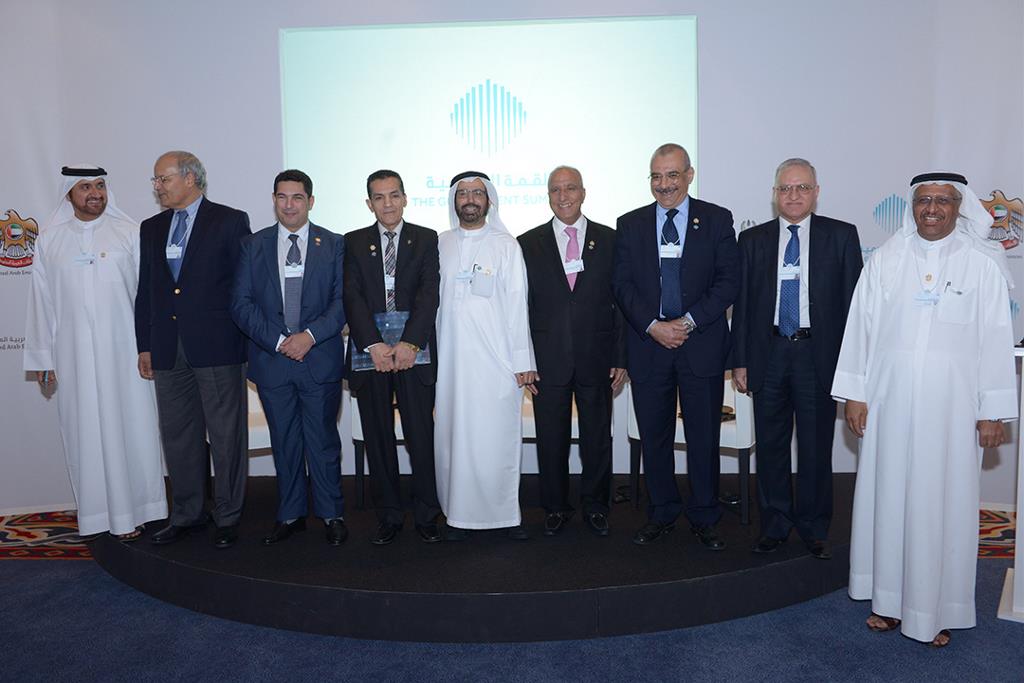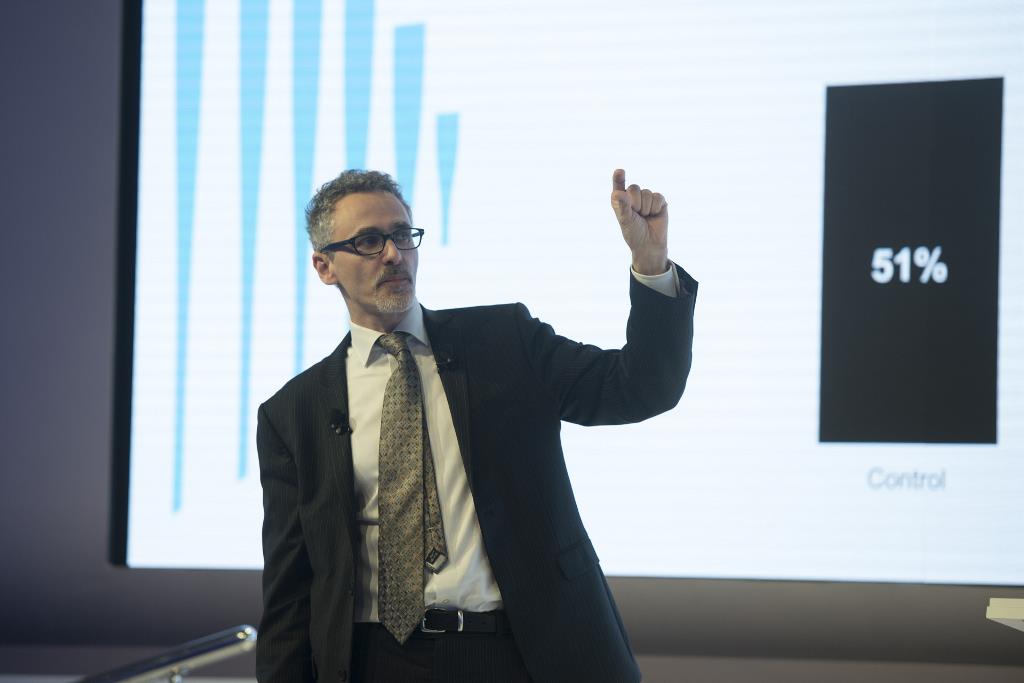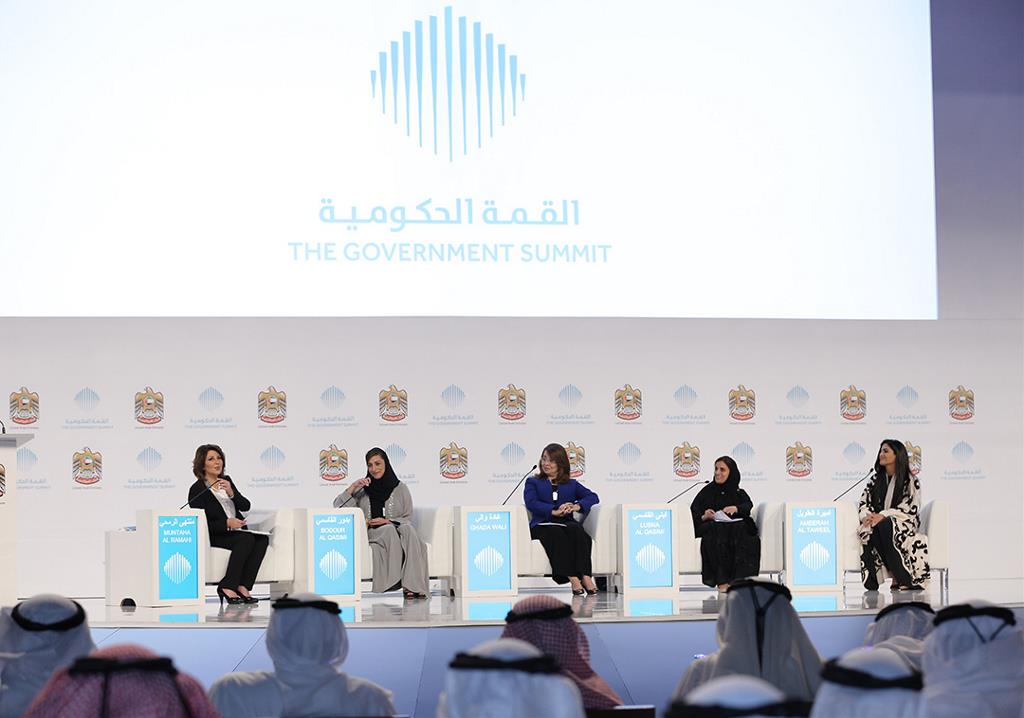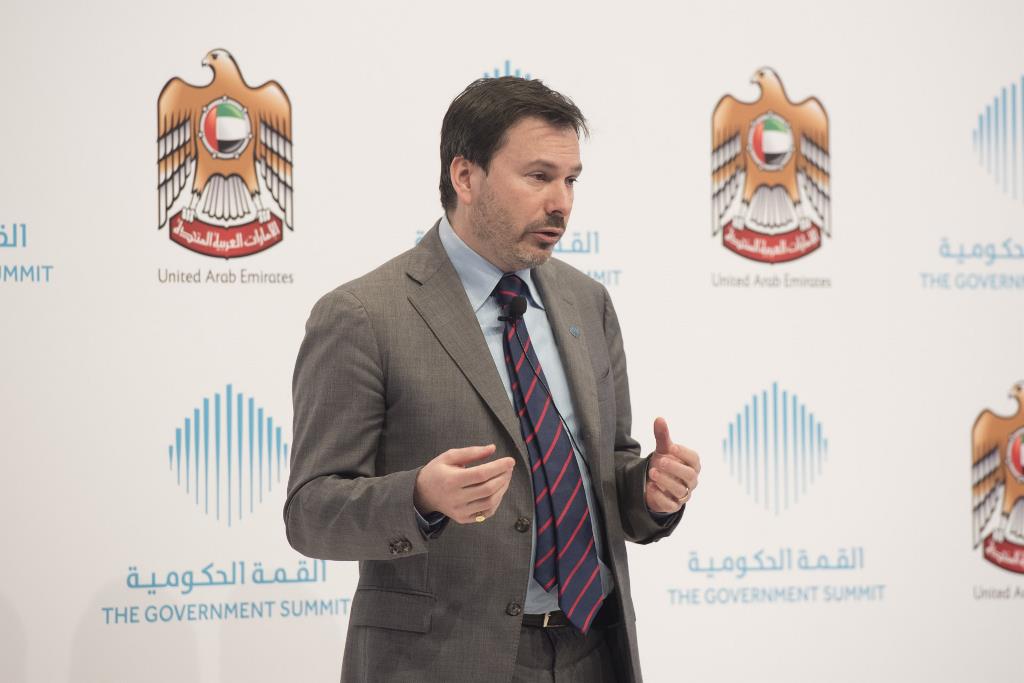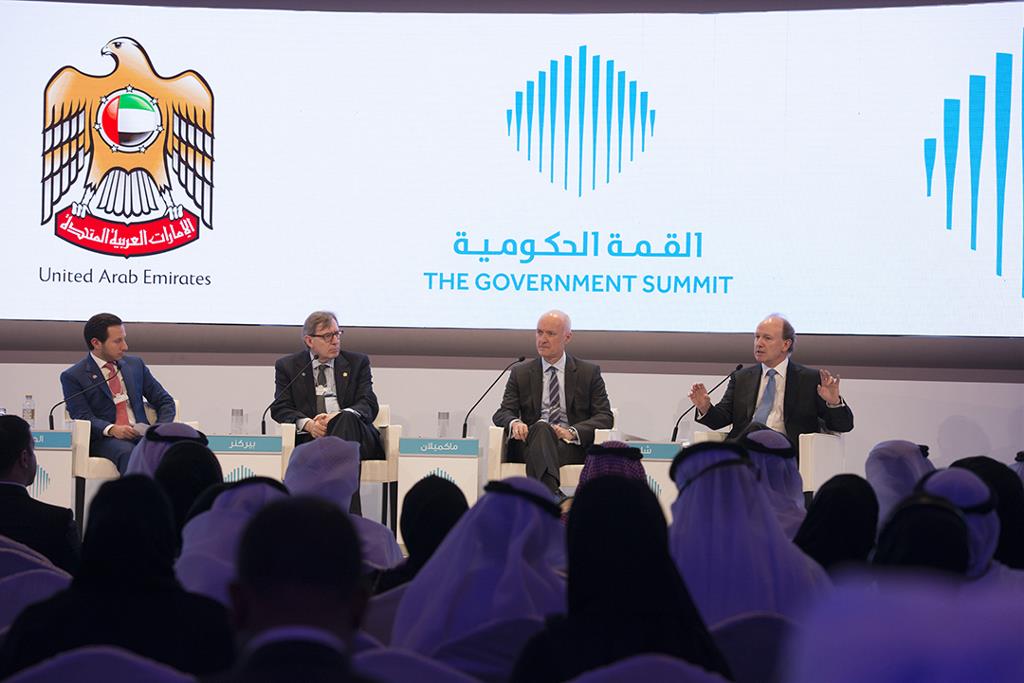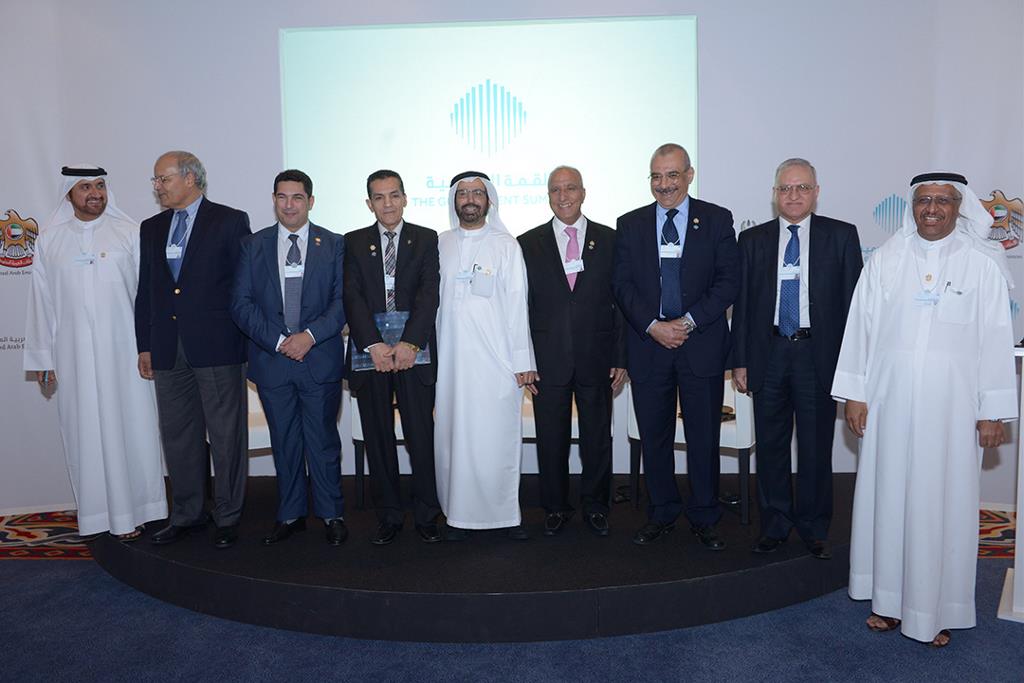Main Address: The New Global Context and its Impact on the Role of Government
The world is facing a crisis of trust and needs effective leadership to restore it, said Professor Klaus Schwab, Founder and Executive Chairman of the World Economic Forum (WEF).
In his address titled The New Global Context and Its Impact on the Role of Government, on the opening day of The Government Summit 2015, Schwab said: “I could not imagine a topic that is more important for the future of the world than the relationship between government and innovation.
“The first thing we see in the world is a collapse of trust, between nations, between religions, and trust that businesses and political leaders enjoy,” Schwab said, emphasizing the need for effective leadership to restore this trust.
“We need honesty and morality in leadership. We need responsible leadership. I emphasize on responsible because leadership has to respond to needs of those who have entrusted us,” he said.
Schwab spoke particularly about the UAE and its leadership. In the Global Competitiveness Report issued by the WEF, the country has continued to rise rapidly, from the 27th rank four years ago to the 12th that it enjoys currently.
“The vision comprises also to be the most modern and best governed country. People today need an identity. They need to be prou
d of something, to belong to the most competitive and the best governed country,” Schwab said. The needs of the post-crisis world are also dependent on effective leadership.
“Until a year ago, we felt that the world will come back to the same growth rates. But that is still to take place in Europe and Japan, with what I call the midlife crisis of some emerging countries,” Schwab said.
Effectively, this means that governments need to be efficient and agile. Bureaucracy has to be replaced by meritocracy.
“The governments have to work closely together with private business. In the future, in the new world, it is not the big fish that eats the small fish, it is the fast fish that eats the slow fish. Today, technological changes happen like a tsunami,” Schwab said.
As system innovation takes over the lives of the citizens of most countries, and the Internet has wide-ranging implications for privacy and data, “our physiological life has to start becoming integrated with our digital life,” Schwab said.
“Competitiveness is the new revolution. Competitiveness will be driven by innovation. It is no longer access to capital or natural resources – it is innovation that has become the decisive competitive advantage,” Schwab said.
“We are not in the age of capitalism. We have entered the age of talents. We will see the second wave of the Internet revolution; we have machine to machine interaction, 3D printing and big data. All together, these will create the tsunami of change in industry.
“The first aspect of the change is “Uberization” of the economy (and it will not be limited to taxis!). We will have an app for all our needs for government services. The second dimension relates to robots and drones, and I have to congratulate you on what you’re doing on drones. It is pioneering.”
Schwab added: “The new technology wave is changing who we are. There is research going on in biology, regeneration of body parts, enzymes and so on. If we make progress in what we are doing in treating cancer, it will prolong life expectancy by a number of years. Now, in Switzerland, every second baby is expected to have a life of more than 100 years.”
These elements of technological progress have tremendous social implications, according to Schwab. “When we meet for the 20th Government Summit, you will use an app like Uber, but not to call some driver. An automatically guided car will come to your hotel and bring you to the airport.”
“At the 10th or 15th summit we will pay not necessarily with Bitcoin but with some virtual currency.” “We are only starting to understand what this means for government, education… Since the wave is coming so fast, governments have the obligation to prepare their people for change,” Schwab said.
“We have to change our whole education systems. The UAE could be one of the first to adopt lifelong learning systems in a systematic way.”
This can only be achieved if governments work closely with the private sector. “We need government and civil society to work together to shape the ecosystem and shape the solutions. It has to be done jointly,” Schwab concluded.
